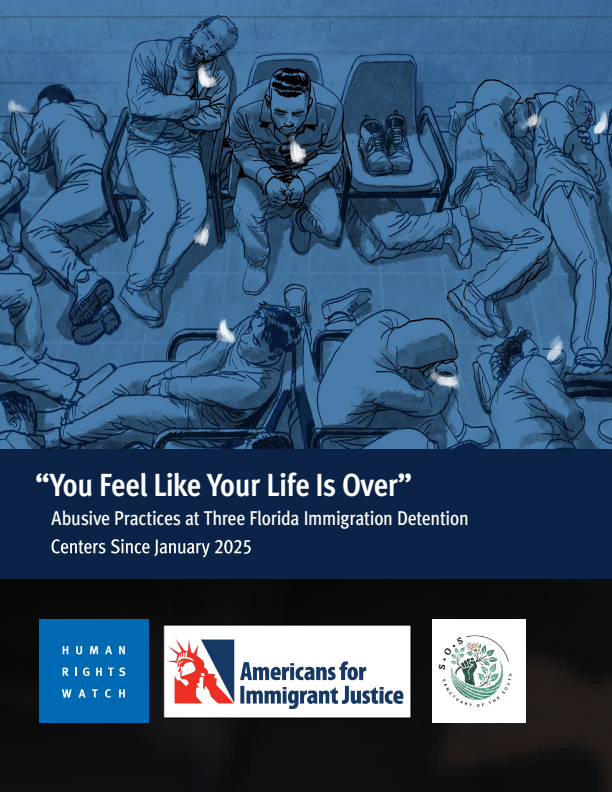By Human Rights Watch
Since January 2025, the United States government has dramatically expanded immigration detention in Florida, detaining thousands of immigrants—many without criminal convictions—in overcrowded, unsanitary, and abusive conditions. This report documents serious human rights violations at three detention centers in South Florida as detention numbers have increased: the Krome North Service Processing Center, the Broward Transitional Center (BTC), and the Federal Detention Center (FDC) in Miami. Detainees described being shackled for hours on buses, confined in freezing, overcrowded cells without bedding or access to hygiene, denied essential medical and mental health care, and subjected to degrading treatment by guards. Women were held in male-only facilities without access to gender-appropriate care or privacy. The subpar medical care may have been linked to two deaths, one at Krome and one at BTC. The report is based on interviews with eleven currently and recently detained individuals, some of which took place at Krome and BTC; family members of seven detainees; and immigration lawyers, as well as data analysis. It finds that the conditions in these facilities flagrantly violated international human rights standards and the United States government’s own immigration detention regulations. The abuses documented—ranging from denial of medical care to punitive isolation and excessive use of force—amount to cruel, inhuman, or degrading treatment. Human Rights Watch calls on the US government to end the use of immigration detention as a default response, terminate harmful state-federal enforcement agreements, ensure international and national detention standards are upheld, and guarantee rigorous oversight and accountability.
New York: Human Rights Watch, 2025. 98p.






